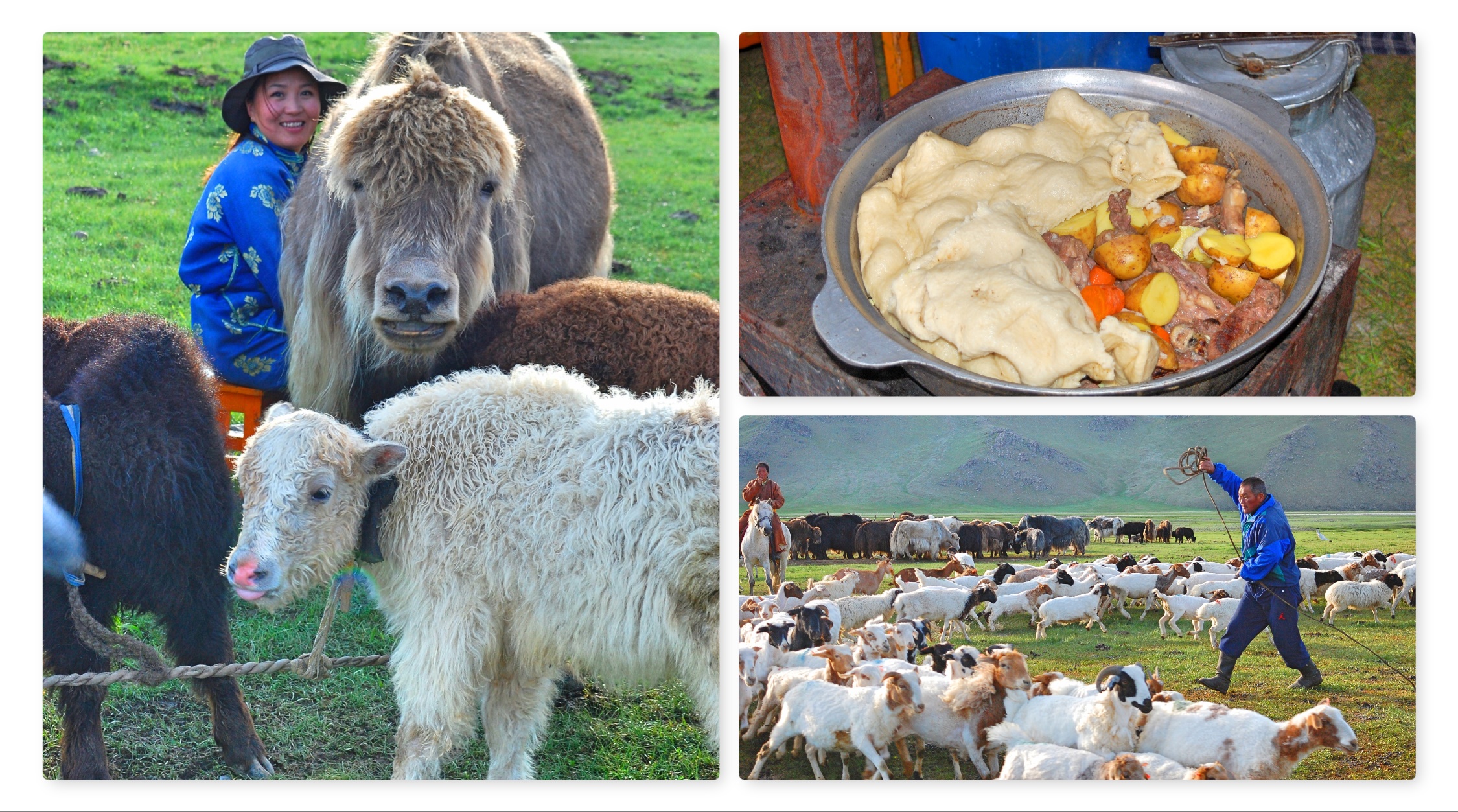
Photo by the author.
Oil runs through my veins.
That’s what I think as I sit, cross-legged, listening to the contemplative practice on living systems from week two of our class. I’m returning to it a second time, four weeks later. Before, I reflected on ‘the far-flung resources’ that brought me my dinner. Today, I imagine dinner floating past on an inky, petroleum river. I think about what I’ve learned so far, about the farm equipment and transportation network that supports our food system, about journalist Amanda Little’s observation that, ‘Americans eat oil,’ (Power Trip, 2009).
Have I ever had a meal without oil? My mind goes to Mongolia, where I lived for two years as a Peace Corps volunteer. Oil transported me there—by plane to Ulaanbaatar, then a twelve-hour bus ride west to the provincial center Bayankhongor. I think about a week I spent three hours away across open steppe, where my friend Dashka’s family herds goats, sheep, and yaks on wild grass. We ate clotted cream stored under a table in their ger (yurt) and khorkhog—meat cooked with hot stones over a dung fire. There is no refrigerator.
It was idyllic. I wasn’t expected to milk the animals, and Dashka’s brother-in-law slaughtered the goat for our khorkhog while I lazed with the kids by the river. It occurs to me that although I come from a line of ranchers on my father’s side, I’ve never learned the basic skills my Mongolian friends have to feed themselves. If left alone on this land, I’d die.
Honestly, even for Dashka’s family, those meals weren’t petroleum-free. We had flour, carrots, onions, potatoes that probably came from China. And they own a motorcycle for trips to the soum (village) center for supplies. Still, I’m thankful to have experienced those meals, and to have been a part of that living system.

Your post was so thought-provoking for me. As a privileged citizen of the developed world, it’s easy to think that a bucolic country life would equal a non-footprint. That this is the ideal in which we strive for to be a “better” human being. But as you said, there is always a marker when we we are present.
I grew up in the Midwest where oil is king. I developed a love/hate of fossil fuels. I recognized the dichotomy of the long-term detrimental effect but also short-term employment of my friends and loved ones. I imagined a life elsewhere that was more simple and “pure” as we would all like to think that as less industrialized cultures are. However, the reality is that we all leave our footprint as we have weight in this world. I am a realist that believes that we will never be as cognizant and empathetic as we should be. However, I would like to hope that the first step is to recognize the impact we have and the choice we make.
Thanks so much for taking the time to read and comment Robin. I will say that the per capita footprint of Mongolia *is* much smaller (for now) than for countries like the US. Much less packaging and my suspicion is much less waste (people are much more judicious about how much food they prepare and cosmetics don’t seem to be an issue at the market from what I can tell). At the same time, there’s a huge shift in the economy right now, with the rural herding lifestyle being abandoned by many due to harsher winters and desertification. Half the country now resides in ‘the’ city of Ulanbaatar, straining the infrastructure. So, while the country currently accounts for far less per capita oil use (and a population of only three million) they are modernizing–with all of the resource increases that implies. I hope that twenty years from now I’d be able to go experience the meal I had in Zag….but I don’t know with certainty how easy that will be.